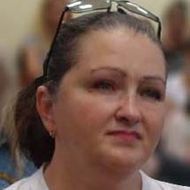- A
- A
- A
- ABC
- ABC
- ABC
- ąÉ
- ąÉ
- ąÉ
- ąÉ
- ąÉ
-
-
Departments
- International Laboratories
-
Educational Programmes
- Bachelor's Programmes
- Master's Programmes
- Doctoral Programmes
- Math in Moscow Programme
- REM and Summer University
-
Faculty
119048Moscow, Usacheva str., 6
phone/fax: +7 (495) 624-26-16
phone: +7 (495) 916-89-05
e-mail: math@hse.ru

Mini Course by Javier Fresán
Schedule:
Lecture 1
December 15, Monday,┬Ā19.00-20.30, Room 1001
Lecture 2
December 18, Thursday,┬Ā 17.00-18.30, Room 311
Lecture 3
December 22, Monday,┬Ā 19.00-20.30, Room 1001
Summary:
Periods form a class of complex numbers halfway between the transcendental and algebraic ones: though usually transcendental, they can nevertheless be described by a finite amount of information. In elementary terms, a period is an integral of a rational function with rational coefficients over a domain given by polynomial inequalities with rational coefficients. This includes numbers like pi, suitable products of special values of the gamma function, multiple zeta values or Feynman amplitudes. Geometrically, periods arise from the comparison between de Rham and singular cohomology of algebraic varieties defined over number fields. This latter point of view allows to use the theory of motives to predict which algebraic relations period should satisfy: according to the Grothendieck period conjecture, the transcendence degree of the field generated by the periods of a smooth, projective variety is given by the dimension of the Mumford-Tate group of the corresponding Hodge structure. In this series of lectures I will give an introduction to this circle of ideas, mainly focusing on examples.
- About
- About
- Key Figures & Facts
- Faculties & Departments
- International Partnerships
- Faculty & Staff
- HSE Buildings
- Public Enquiries
- Studies
- Admissions
- Programme Catalogue
- Undergraduate
- Graduate
- Exchange Programmes
- Summer University
- Summer Schools
- Semester in Moscow
- Business Internship
-
https://elearning.hse.ru/en/mooc/
Massive Open Online Courses
-
https://www.hse.ru/en/visual/
HSE Site for the Visually Impaired
-
http://5top100.com/
Russian Academic Excellence Project 5-100
- © HSE University 1993–2024 Contacts Copyright Privacy Policy Site Map
- Edit





